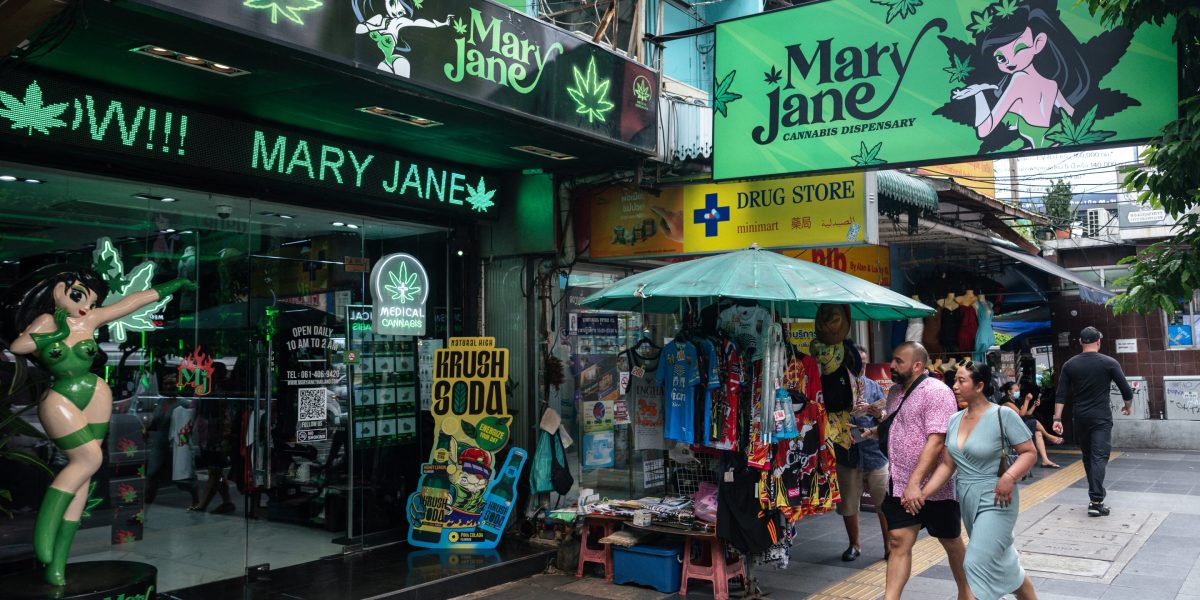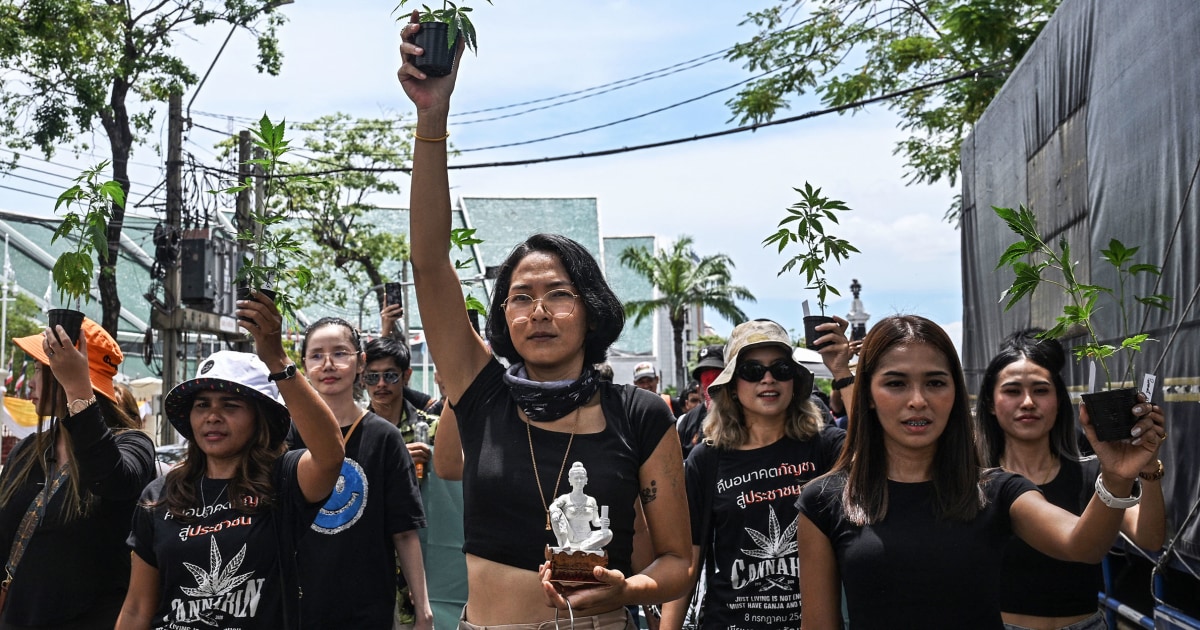Thailand Enforces New Cannabis Regulations Amid Concerns Over Unregulated Sales
Thailand has banned cannabis sales without a prescription, reclassifying cannabis buds and imposing penalties to address social issues related to unregulated use.
Overview
- Thailand has introduced a ban on cannabis sales without a prescription, marking a significant regulatory shift after three years of decriminalization.
- Cannabis buds have been reclassified as a controlled herb, tightening previous regulations surrounding cannabis use.
- Violators of the new cannabis sales regulations face severe penalties, including up to one year in jail and a fine of 20,000 baht.
- The government aims to address growing concerns over cannabis access, particularly among children and young people, prompting this policy change.
- These new regulations are expected to reshape Thailand's billion-dollar cannabis industry and tackle social challenges that have emerged since decriminalization.
Report issue

Read both sides in 5 minutes each day
Analysis
Center-leaning sources frame Thailand's cannabis ban as a necessary regulatory measure, emphasizing public health concerns and the need for prescriptions. They express a cautious perspective on the previous decriminalization, highlighting potential social issues, particularly among youth, while acknowledging the economic implications for the burgeoning cannabis industry.
Articles (6)
Center (4)
FAQ
Thailand has reclassified cannabis buds as controlled herbs, banned cannabis sales without a prescription, restricted sales and advertising, and imposed penalties including up to one year in jail and a fine of 20,000 baht for violations. The regulations require prescriptions for medical use only, limit sales to authorized practitioners, and enforce strict licensing and documentation measures.
The government aimed to address growing concerns over unregulated cannabis access, particularly among children and young people. Other motivations included increased cannabis smuggling from Thailand to other countries and the political withdrawal of a party that had promoted cannabis legalization.
The new regulations are expected to reshape Thailand's billion-dollar cannabis industry by tightening control over cultivation, sales, research, exports, and advertising, restricting it to medical use only. Licensed handling and strict reporting will be mandated, substantially limiting recreational and commercial cannabis activities.
Violators of the new cannabis sales regulations face severe penalties, including up to one year in jail and fines of up to 20,000 baht.
Cannabis sales are allowed only with a medical prescription from authorized practitioners, including traditional healers. Advertising and commercial sales of cannabis are banned, and sales cannot occur near certain public places such as temples and parks.
History
- 4M

 3 articles
3 articles





